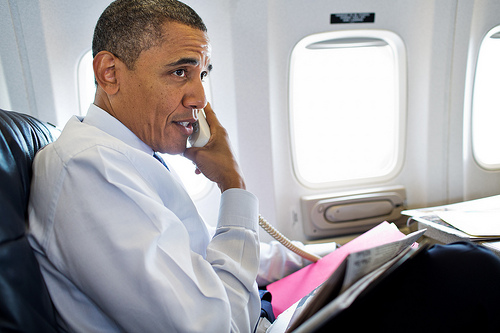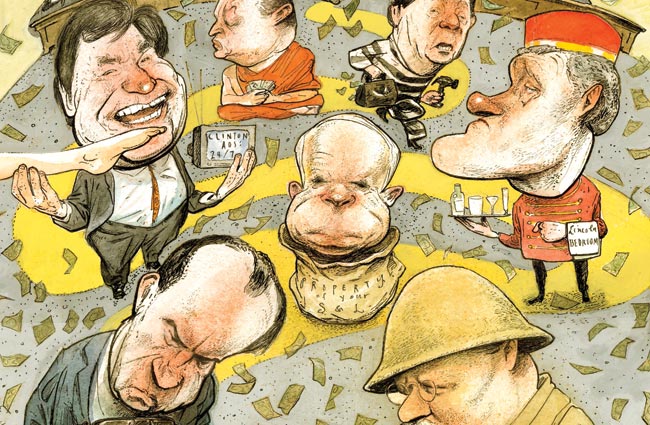
<a href="http://www.flickr.com/photos/whitehouse/7694069206/sizes/m/in/photostream/">White House</a>/Flickr
President Barack Obama decisively won a second term thanks to what he called “the best campaign team and volunteers in the history of politics.” A critical part of Obama’s cutting-edge political machine was the vaunted fundraising operation assembled by Obama’s allies. Fueled by millions of small individual donations and big-dollar gifts from wealthy supporters, Obama’s reelection effort raised north of $1 billion this election.
A tremendous, unprecedented grassroots fundraising effort accounted for a large chunk of this take. But Obama also pulled off a major big-money operation. He raised a staggering $300 million in top-dollar donations through an extensive network of so-called “bundlers,” according to campaign spokeswoman Katie Hogan. These volunteer fundraisers gathered donations from friends, family, colleagues, and more, each collecting between $50,000 and millions of dollars for the campaign. At last count, the Obama campaign had 758 bundlers working on its behalf; the list included Vogue editor Anna Wintour, pop star Gwen Stefani, former Secretary of State Madeleine Albright, and former Florida Gov. Charlie Crist.
Presidential candidates are not required to disclose their bundlers. The Obama campaign did so voluntarily throughout the 2012 campaign. The Romney campaign never revealed its bundlers.
Several Obama bundlers say the campaign’s big-dollar fundraising was so successful that the campaign revised its goal upwards at least once. Hogan notes that “it is accurate to say the goal was increased, but I don’t have more details about that.”
The president raised money at a blistering, historic pace during the 2012 campaign. He attended a total of 220 reported fundraisers—more than any presidential candidate before him—between the launch of his reelection campaign launch in April 2011 and Election Day. At one point, in August of this year, Obama was attending, on average, one fundraiser every 60 hours.
Dick Harpootlian, an Obama bundler and the chair of the South Carolina Democratic Party, says Obama’s fundraising operation was like nothing he’d seen in 40 years of politics. Matthew Barzun, the former US ambassador to Sweden who oversaw Obama’s bundler network, was “extraordinary,” Harpootlian says. “I can’t overstate how effective his focus was on fundraising and the staff that he put together.”
Harpootlian added: “This was better than [the] ’08 [Obama campaign], and many of the people involved in ’08 were involved in this. They’ve learned and grown.”
A Midwest-based bundler says the campaign’s fundraising operation made smart investments in staff and technology early in the campaign. “There was never a moment on the campaign that I recall where it felt like they were panicked about how they were fundraising,” this bundler says.
Harpootlian echoes that sentiment. He says the campaign’s fundraising team succeeded in raising big money early, knowing that smaller donations wouldn’t flood in until later in the campaign when more people tuned into the race.
On the weekend before the election, the president’s top fundraisers joined a conference call with Barzun and Obama. The two men offered their thanks for all the help raising this vast sum of money.
But Obama had another message for this elite group of supporters, according to Harpootlian. “A number of you are coming to Chicago” for Election Day, Obama said. “But we’ve got doors to knock in Wisconsin.” Shortly after, an email went out to fundraisers with information about buses taking supporters into Wisconsin, and with phone numbers to call to get out the vote in key states.
“You know what?” Harpootlian says. “Everybody loved it.”
And indeed, Harpootlian says, some bundlers did end up in Wisconsin on Election Day—before making their way to the celebration.











